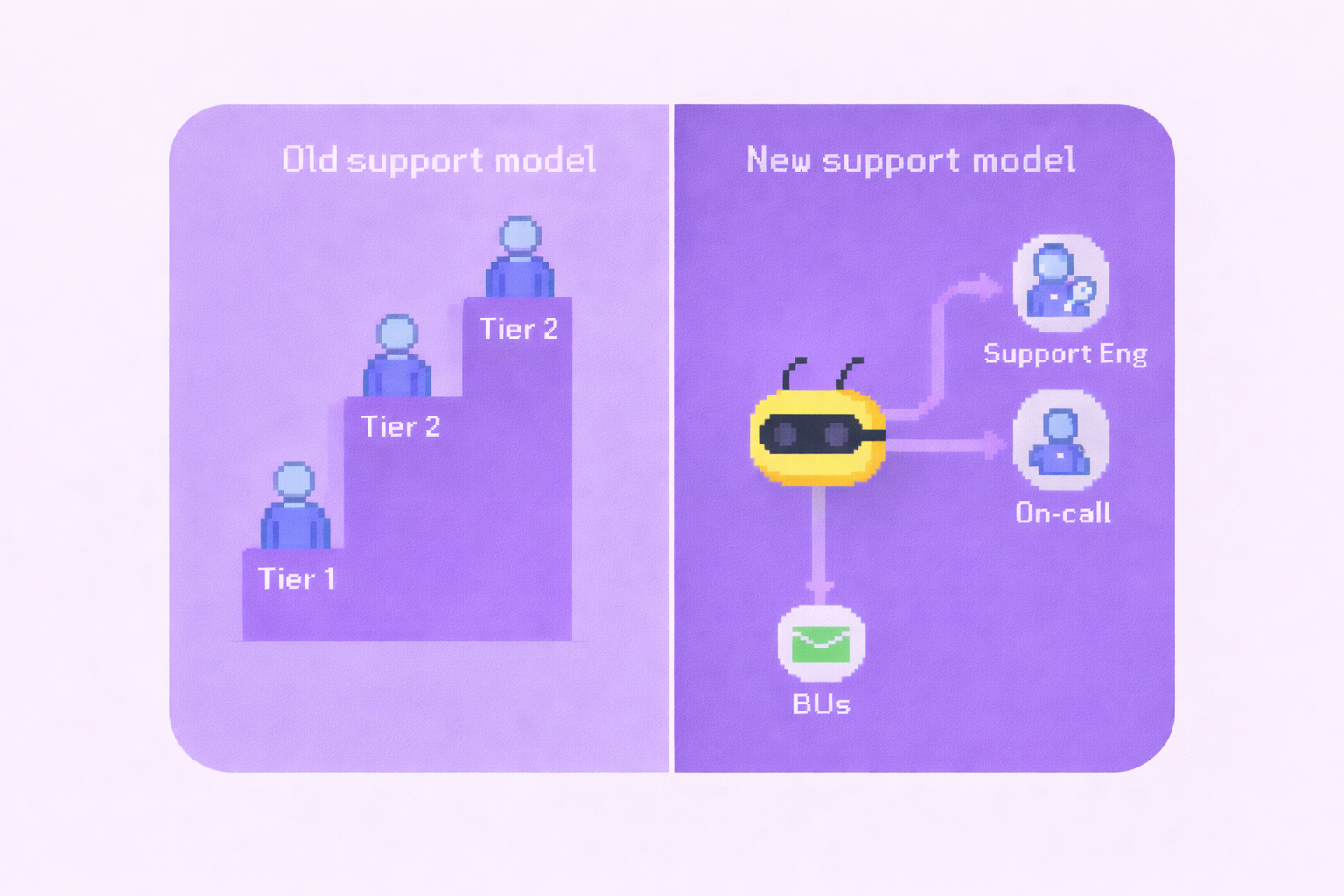How to Lead a Team Like a Pro Your First Time

There are a lot of reasons you can be put in a leadership position, and it's not always something you're prepared for. We've met a lot of reluctant de facto managers who have painstakingly grown to become outstanding leaders. Although most of them braved the crucible of trial and error to get to that level, you don't have to.
You can build specific competencies and practices early on that will help short-circuit that process, and get you to a place of confident and impactful leadership much sooner than you would otherwise.
Also check out: The Complete Manager's Guide to Employee Recognition
7 Management tips for first-timers
Here are some examples of things you can use to make your first leadership position a great experience from day one:
1. Know yourself and your organization
Perhaps one of the most important things you can focus on early in the process is zooming out, and taking stock of your personal assets: your own core competencies, the way you like to get things done, and your current limitations.
It's absolutely possible to push past those initial limitations, but pushing too far without the necessary tools is a recipe for disaster.
Next, identify the assets your organization and your team can provide you with. The better you know your organization—its goals, values, mechanics, strengths, and people —the better you'll be able to implement strategies that push it forward.
A thorough assessment of your available assets can make all the difference.
Once you've got a good sense of what you have available to you, it will be easier to answer more challenging questions, and solve tougher problems.
Make sure you're aware of which members of your team are subject matter experts in which areas so that they can help you to make better decisions and push the organization forward more effectively.
Sharlyn Lauby published a great list of tips for first-time supervisors, and many of her examples apply here as well:
Often we put additional pressure on ourselves by assuming incorrectly that being a supervisor means we need to have all the answers. Being a supervisor means we should be able to find all the answers, not that all the answers are located in our heads.
The true test of an effective leader is how well they can apply their own unique skills and knowledge along with those of their team and their organization to produce work that is greater than the sum of those parts.
2. Share your assets
Once you have a good sense of what your assets are, it's just as important to learn how to leverage and share them effectively in a leadership capacity.
Mentorship and skill sharing are a massively powerful tool for any leader.
It's crucial to know your strengths, not only because you need to know what you can personally bring to the table, but also because you need to know what you can share with others.
Even if it's something you might consider trivial, it might not be to others. That skill could be influential in the advancement of a colleague's career, so share your knowledge freely and frequently.
It's equally important to identify how your additional leverage as a leader can help your team do their jobs more effectively.
There might be a redundant process standing in their way that you now have the authority to eliminate. There could be a bottleneck on a much larger initiative that you can relieve by eliminating or fast-tracking a smaller project.
Find out what leverage you have, and how it can impact the effectiveness of your team. That will help get more work done in a shorter time, and doing so can often help to eliminate project-based friction or frustration.
3. Value and practice transparency
One of the most crucial factors in building the trust required to lead a team to success is transparency. Gathering and sharing the crucial information needed to achieve maximum output is nearly impossible in a siloed, opaque organizational structure.
Be transparent about what your goals are, what your organization's goals are, and how you're planning to achieve them. This isn't only useful in building trust, there's a significant logistical element here as well.
It's vital that your team knows why their contributions matter, and why they're doing what they're doing. Transparency isn't only going to help your team understand why they're working for you—it also provides a tactical element of "how" you're trying to get the work done.
As Carolyn O'Hara puts it in her Harvard Business Review article:
Whether you’re taking over an existing team or starting a new one, it’s critical to devote time and energy to establishing how you want your team to work, not just what you want them to achieve. The first few weeks are critical.
Giving someone instructions without context might get the job done, but it's not likely to get that job done to its utmost potential. The more of that context you can share, and the clearer you can be about how you're approaching the solution, the better.
You may also find that by supporting and maintaining an atmosphere of transparency in your team, this information flows both ways. This omnidirectional flow of information can provide priceless insights into your team and your organization that you might otherwise miss.
Also check out: The Complete Manager's Guide to Employee Recognition
4. Schedule regular one-on-one meetings
When they're conducted effectively and regularly, one-on-one meetings are one of the most impactful tools you have at your disposal.
They'll not only help you stay abreast of what your team is working on, where they're challenged and where they're blocked—they'll help you to understand how you can do your own job better, how you can make a greater impact on the organization, and how you can help your team achieve their individual goals.
Why do you need to know that?
Your ability to help members of your team achieve their goals will directly impact their motivation, and your ability to achieve yours. One-on-one meetings are an excellent forum to learn where your team needs your support the most and the most effective way you can provide it.
They should happen frequently, at least once a week.
If you're new to conducting one-on-one meetings, and they seem a bit intimidating, don't worry—you're not alone.
Check out our guide to help leaders and their teams get the most from one-on-one meetings that you might find helpful. It's full of tested techniques and important lessons we've learned as we continue to develop our own one-on-one strategy.
One-on-one meetings can be challenging to get right, but the payoff is huge.
Want our newest blog posts straight in your inbox? Sign up for our bi-weekly newsletter!
5. Recognize great work
Everyone deserves to be recognized for their contributions.
One of the most critical goals you should set as a new leader is to recognize and reward great work wherever it happens across your team. That's not always as easy as it sounds, so it's equally important to have a mechanism in place that can help you achieve that goal, even if you're not able to witness every contribution.
The key is understanding that recognition doesn't have to come directly from you every time—but it does have to happen if you want to keep your team motivated and engaged.
There are a lot of recognition tools and resources available to help you build a culture of recognition across your team, but here are a few of the most important points to consider.
To be its most effective, employee recognition should be:
- Timely
- Frequent
- Specific
- Visible
- Values-based
- Inclusive
6. Focus on team performance
Your success is no longer directly tied to your individual performance. It's absolutely critical to make that mental shift, and it's often a huge sticking point.
Although you may have found yourself in a leadership position because of your individual performance in a certain function, that's no longer going to be the way your impact on the organization is measured.
You're now responsible for the success of the team, and there's only so much legwork you can accomplish on your own.
That means doing fewer things yourself—because you can often make a bigger impact by effectively delegating work to a talented team than you can by doing the work by yourself—even if you've got tremendous skill in the area.
That can be a bit unnerving, especially for those who haven't been in a leadership position for very long, but it's crucial to learn to trust in the competency of your team.
Avery Augustine explains this in her recent article on The Muse:
As a manager, you can’t possibly know and keep up with all the details of each and every project that the members of your team are working on. Trying to do so will turn you into a micromanager—which isn’t beneficial to you or your team.
It may take a while to adjust to this way of accomplishing goals and getting work done, but that effort pays off.
Also check out: The Complete Manager's Guide to Employee Recognition
7. Learn to delegate
Delegating effectively is one of the most valuable skills you can bring to your organization, but it's always important to maintain a healthy level of empathy, and remember what it was like earlier in your career.
Craig Cincotta, SAP's Senior Director of Marketing Communications, explained this in a great article he wrote for Entrepreneur:
You need to create an environment where you are actively relying on others to help carry projects. You will still be informed, but you need to let others lead so they can grow their abilities and perspective.
It's not just that you're pushing work off onto others—you're orchestrating a body of work that you could not accomplish alone, and you're handing them the tools they need to expand their own skills and competencies.
With each project you successfully delegate to your team, you move the organization and your skills as a leader forward a little bit faster.
Takeaway
Leading a team for the first time can feel overwhelming. You’re expected to motivate, guide, and support people—often without much training or a clear playbook.
The good news? You don’t have to get everything right on day one. Strong leadership is built through small, consistent actions that help people feel seen, supported, and on track.
Bonusly gives new managers simple tools to recognize great work, keep meaningful one-on-ones on track, and build trust through regular feedback, right where work already happens. It helps you focus on what matters most: building strong relationships and helping your team succeed.
Want to see how? Sign up for Bonusly for free today and start leading with clarity, confidence, and connection from day one.
.jpg)







